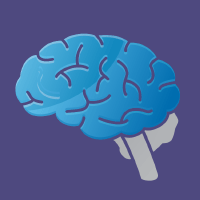Topic Menu
► Topic MenuTopic Editors


Diversity, Educational Inclusion, Emotional Intelligence, Coping, and Other Factors That Influence Psychological Health and Well-Being
Topic Information
Dear Colleagues,
To achieve the sustainable development goals of the 2030 Agenda, it is essential to address educational inclusion and the improvement of well-being, emotional intelligence, coping, health, and quality of life. Further advancements are needed to improve the care for people with intellectual disabilities, neurodevelopmental disorders, and other special educational needs, as well as socioemotional adaptations and health (including affective sexual development) in children and adolescents. Other learning difficulties, cultural and affective-sexual diversity, and physical and gender differences must also be considered. Barriers and stereotypes must be eliminated in different contexts, such as the educational, social and health environments, considering factors that affect health and inclusion in different areas. For this Special Issue, we seek articles that explore special educational needs, learning difficulties, and attention to diversity in a broad sense (people with functional diversity, cultural diversity, affective sexual, bodily and gender diversity, etc.) in different contexts or situations and any related factors.
Prof. Dr. Francisco Manuel Morales Rodríguez
Dr. Juan Pedro Martínez-Ramón
Topic Editors
Keywords
- attention to diversity
- educational inclusion
- coping strategies
- learning difficulties in mathematics
- effective communication
- happiness organizations
- emotional intelligence
- children and youth
- stress
Participating Journals
| Journal Name | Impact Factor | CiteScore | Launched Year | First Decision (median) | APC | |
|---|---|---|---|---|---|---|

Children
|
2.0 | 2.7 | 2014 | 14 Days | CHF 2400 | Submit |

Education Sciences
|
2.5 | 4.8 | 2011 | 29.8 Days | CHF 1800 | Submit |

Healthcare
|
2.4 | 3.5 | 2013 | 20.3 Days | CHF 2700 | Submit |

European Journal of Investigation in Health, Psychology and Education
|
3.0 | 4.4 | 2011 | 26.9 Days | CHF 1400 | Submit |

Journal of Intelligence
|
2.8 | 2.8 | 2013 | 25.8 Days | CHF 2600 | Submit |

MDPI Topics is cooperating with Preprints.org and has built a direct connection between MDPI journals and Preprints.org. Authors are encouraged to enjoy the benefits by posting a preprint at Preprints.org prior to publication:
- Immediately share your ideas ahead of publication and establish your research priority;
- Protect your idea from being stolen with this time-stamped preprint article;
- Enhance the exposure and impact of your research;
- Receive feedback from your peers in advance;
- Have it indexed in Web of Science (Preprint Citation Index), Google Scholar, Crossref, SHARE, PrePubMed, Scilit and Europe PMC.

